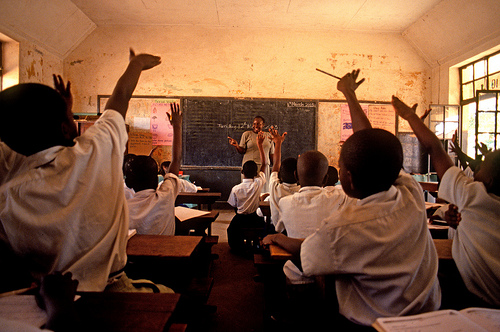African Engineering Education Gets a Boost
 Last week global science education scored a victory as UNESCO and the Institute of Electrical and Electronics Engineers (IEEE) signed a partnership agreement for bringing engineering initiatives to Africa.
Last week global science education scored a victory as UNESCO and the Institute of Electrical and Electronics Engineers (IEEE) signed a partnership agreement for bringing engineering initiatives to Africa.
At a time when the scarcity of engineering expertise is sounding alarm bells across the United States, the “engineering community” of Africa, which the agreement addresses, is almost never given a thought. Though UNESCO devotes an entire working group to pilot projects in sub-Saharan engineering, it has an almost invisible presence in the international science arena. The slow advancement of engineering education in Africa has been shown to be as tenuous as it is critical.
Now, UNESCO and IEEE will combine forces to move along accreditation of engineering programs and recruit more women into the discipline throughout the continent. Other plans involve training more teachers to lead the surge. As the world’s largest organization of technical professionals, IEEE is positioned to trigger revolutions where AEEA, formerly the largest mover-and-shaker in African engineering, could merely hold conferences.
“Everywhere in the world, quality of life and prosperity depend on the application of technology,” said IEEE President and CEO Gordon Day. “That means that every country needs to have and sustain a strong high-tech workforce.”
Africa was pinpointed as a high-priority area for educational improvement because of the rising demand for engineers, estimated to be 2.5 million in the sub-Saharan region alone. With projects such as Vodacom’s network expansion and Ethiopia’s Renaissance Dam shifting into gear, Africa can either outsource its labor, or–more educationally and economically potent–train its own.
Creative Commons Love: UNESCO photobank
Written by Tiffany Tsai











